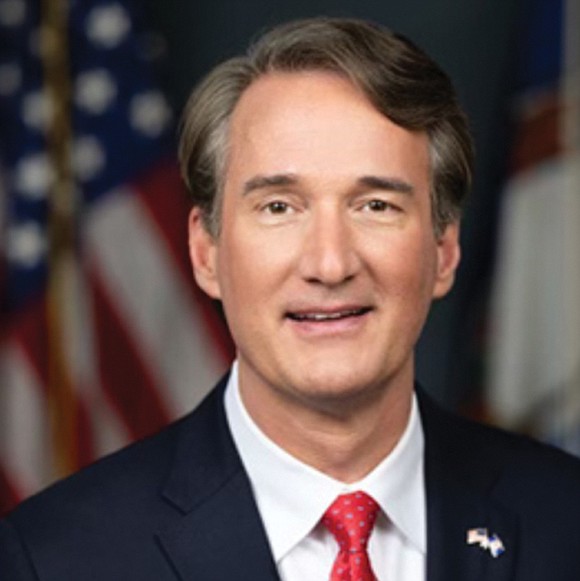Legislators told to ‘buckle up’ for fast-paced session
Abortion, gun control and voting rights among top issues
Jeremy M. Lazarus | 1/12/2023, 6 p.m.
A sharply divided General Assembly was gaveled back into session Wednesday for a potentially contentious 46 days.
Highlights of the session will include debates, at least in committee, on a potential ban on abortion to authorizing retail sales of marijuana, reinstating the death penalty and raising the minimum wage.
How much of this legislation will get to the floor in both chambers remains uncertain in an election year when all 140 seats will be on ballot in November and every district has been renumbered and transformed by the redistricting resulting from the 2020 Census.
Republican Gov. Glenn A. Youngkin has urged lawmakers to “buckle up because we are going to go fast,” but most observers believe the legislative product is likely to be slim given that Democrats now hold a four-vote majority in the Senate and Republicans have a four-vote majority in the House. Democrats in the Senate benefitted when Aaron Rouse flipped a previously Republican Senate in Virginia Beach in a special election Tuesday, giving them an extra vote and a cushion in defending a wide range of previous reforms on gun control, voting rights and a host of other issues.
In other words, items without bipartisan support in both houses are likely to end up being canned in one house or the other rather than advanced, no matter how worthy
As one observer put it, “This is a session that could see a lot of sound and fury, but little in the way of results.”
Abortion is a top example of an issue likely to get prime-time attention but go nowhere. The governor put the issue front-and-center in calling on the legislature to criminalize abortions after 15 weeks of pregnancy.
However, even Republican House Speaker Todd Gilbert of Woodstock believes there is little chance of getting the Democratic-controlled Senate to go along with increased restrictions on women’s reproduction rights.
The 22-member Virginia Legislative Black Caucus made it clear in a press release that much of their work this session will involve protecting the changes that have been instituted, ranging from early voting and same-day voter registration to protection of women’s rights on health care and limits on guns sales.
For Richmond, the big question is whether General Assembly will authorize the capital city to hold a second referendum on hosting a gambling casino-resort or snatch opportunity away and hand it to Petersburg as state Sen. Joseph D. Morrissey is proposing.
Richmond voters narrowly rejected the casino in 2021, but Mayor Levar M. Stoney and City Council are pushing to get a second vote.
Another big question is whether the General Assembly will vote to authorize retail sales of marijuana at this session or punt the issue until next year.
A bipartisan group of white Democrats and Republicans have filed bills to authorize medical marijuana dispensaries and big out-of-state corporations to start sales while eliminating any requirement for inclusion of Black-owned businesses or people who were damaged by past criminalization of pot.
A loose alliance of largely Black-led organizations, which advocates for inclusion of Black entrepreneurs in the potentially lucrative sales business and to ensure that state tax revenue from sales benefit the communities that were hardest hit by enforce- ment of anti-marijuana laws, plan to fight the effort to eliminate social equity provisions of the current law.
Amending the two-year budget will be a major focus of the session. The governor and legislators will have a $3.6 billion surplus to work with.
Among other things, the governor wants the House and Senate to enact $1 billion in additional tax cuts, on top of the $4 billion approved last year, and pour $230 million into expanding mental health services through the creation of 30 mobile crisis, expanding services in schools and increasing access to in-home services in response to a series of high-profile mass shootings. As part of his environmental package, Gov. Youngkin also is proposing to provide another $100 million grant to Richmond to support the city’s efforts to end the discharge of raw waste into the James River during heavy rains.
The governor is proposing his package of budget changes amid warnings that a recession could be ahead, a concern that has Democrats and some Republicans cautioning about shrinking tax revenue.
House Minority Leader Don Scott of Portsmouth considers the governor’s approach too targeted to benefitting large corporations while doing too little to benefit small businesses and working families.
“He is taking a more top-down approach to tax cuts,” said Alexandria Delegate Charniele L. Herring, chair of the House Democratic Caucus, who plans to again urge that the legislature make the earned-income tax credit fully refundable.
Democrats, including the Black Caucus members, have laid out their own vision for spending that calls for creating “an economy for hard-working Virginians,” essentially laying out a framework for the upcoming campaigns to win back control of the House and maintain their Senate majority.
Their plan calls for boosting spending for affordable housing, lowering prescription drug costs and requiring paid sick leave for health-care and grocery workers. They also want continue raising the minimum wage, now $12 an hour, to $15 an hour by 2026, though that appears unlikely to get through the Republican-controlled House.








